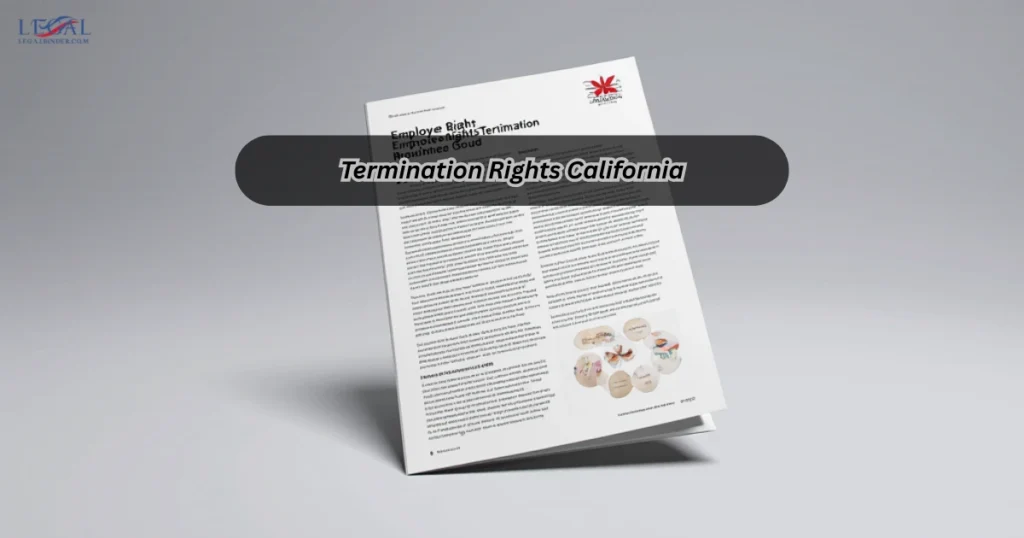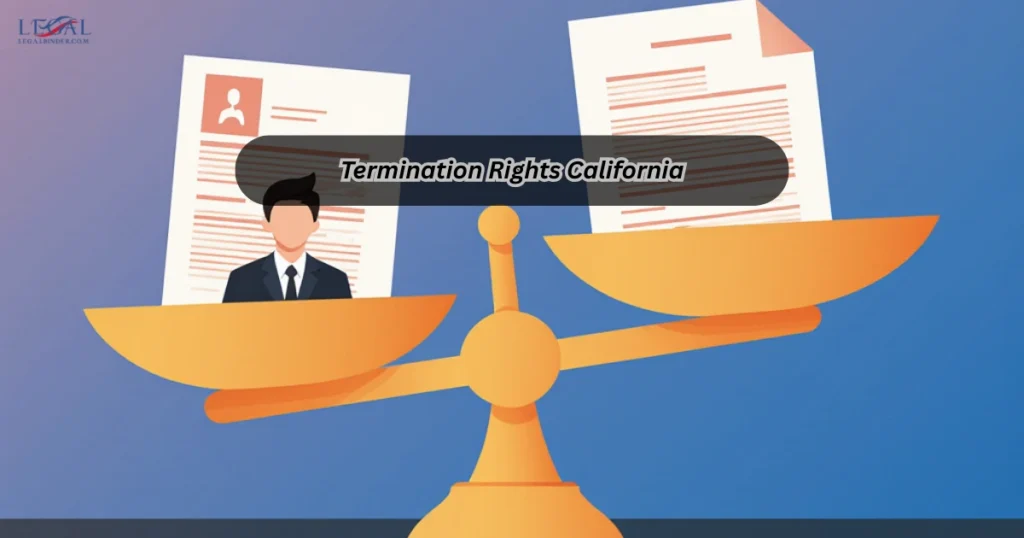Physical Address
304 North Cardinal St.
Dorchester Center, MA 02124
Physical Address
304 North Cardinal St.
Dorchester Center, MA 02124

Losing your job is one of life’s most stressful experiences. Beyond the financial worry, you may feel uncertainty, frustration, or even fear. If you’re in California, understanding your Termination Rights California can help you take back control during this difficult time. Knowing exactly what protections you have—whether it’s about your final paycheck, benefits, or wrongful dismissal—gives you confidence to stand up for yourself.

This article is your detailed guide to employee rights during termination in California. You’ll learn how state law protects you, what your employer must provide, and the steps you should take if you suspect your rights are being violated. By the end, you’ll have not just information, but also practical strategies to protect your career and your future.
California follows the at-will employment rule, meaning either you or your employer can end the employment relationship at any time, with or without cause. But this rule has important limits. Employers cannot terminate you for illegal reasons, and they must comply with state labor laws during the termination process.
Source: California Department of Industrial Relations (DLSE).
California law requires employers to pay all wages due immediately at the time of termination. If you quit and give at least 72 hours’ notice, you must also be paid on your last day.
Reference: DLSE Paydays FAQ.
Employers must provide notice about your right to continue health coverage under COBRA or Cal-COBRA. You may be able to extend your employer’s plan at your own expense, which can be crucial for protecting your health during job transitions.
Not all terminations are lawful. If your employer fires you for an illegal reason, you may have grounds for a wrongful termination claim. Common unlawful reasons include:
Complaints can be filed with the California Civil Rights Department (CRD).

Under the California WARN Act, employers with 75 or more workers must provide 60 days’ notice for certain layoffs or relocations.
Source: California WARN Act – EDD.

Employers are not legally required to provide severance pay, but some offer it as part of a separation agreement. Review any agreement carefully before signing, as it may include a waiver of rights to sue.
No, severance is not mandatory in California unless promised in your contract or policy.
You may be entitled to “waiting time penalties” under California labor law.
Yes, because of at-will employment. But illegal reasons such as discrimination or retaliation are prohibited.
You can file with the California Civil Rights Department or consult an employment attorney.
Termination can feel like the end of stability, but it doesn’t have to mean the end of your confidence. By understanding your Termination Rights California, you’re not just surviving job loss—you’re actively protecting your future. From final paycheck laws to wrongful termination safeguards, every piece of knowledge is a shield that keeps you secure.
To explore more employment law resources, visit the California DLSE or check our detailed legal guides at USALegalBinder.com. Stay informed, stay empowered, and move forward with clarity and strength.